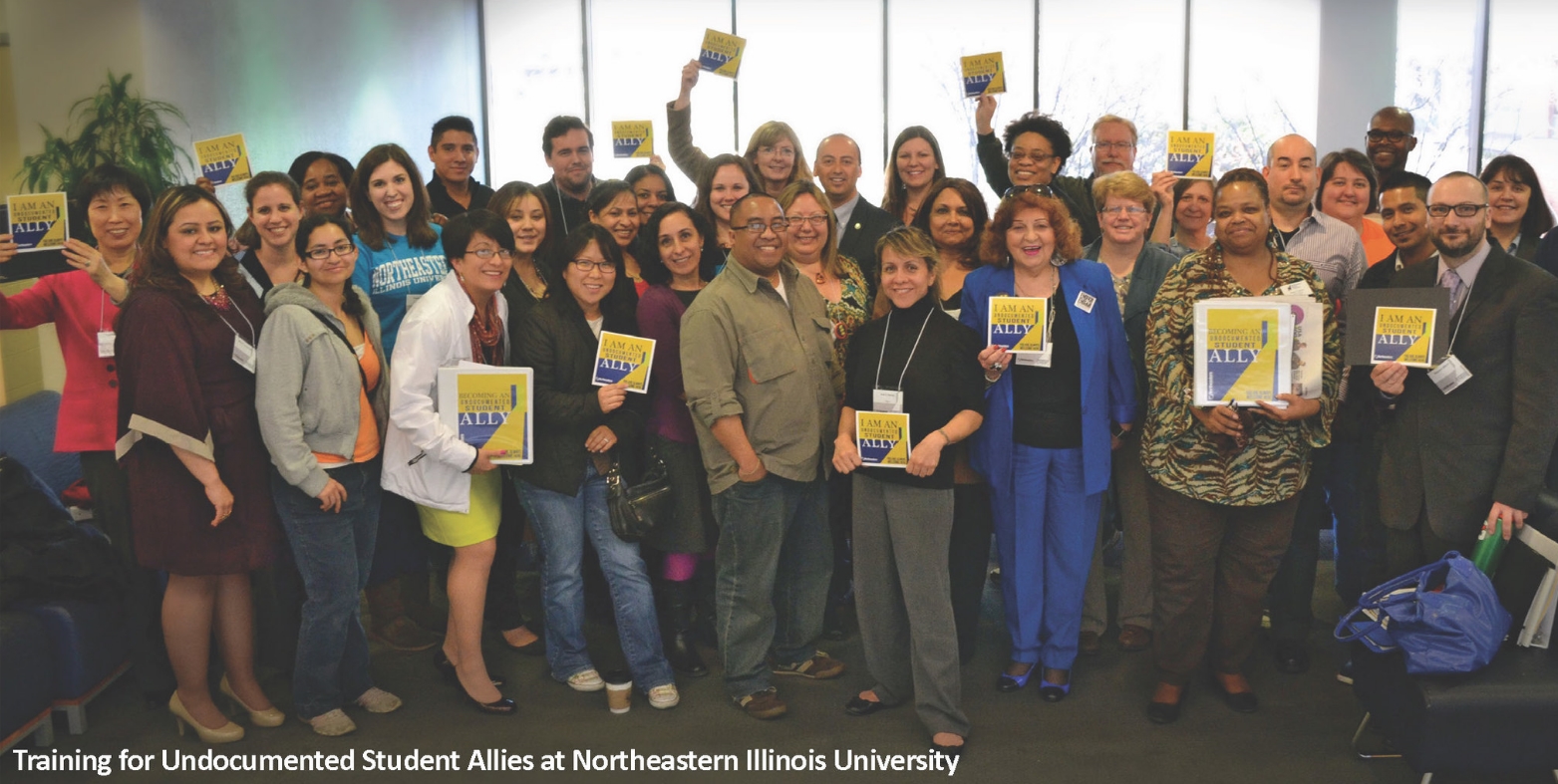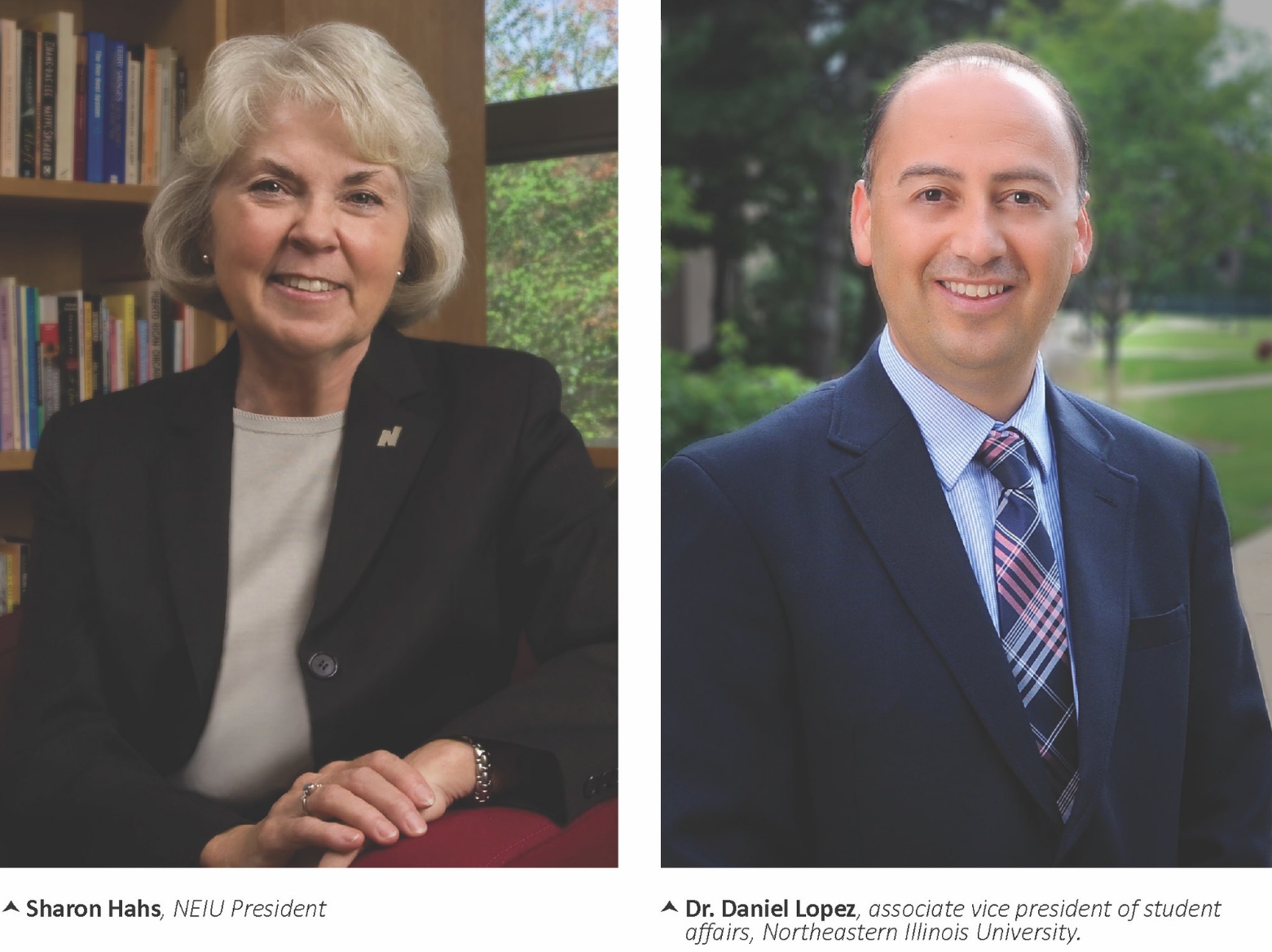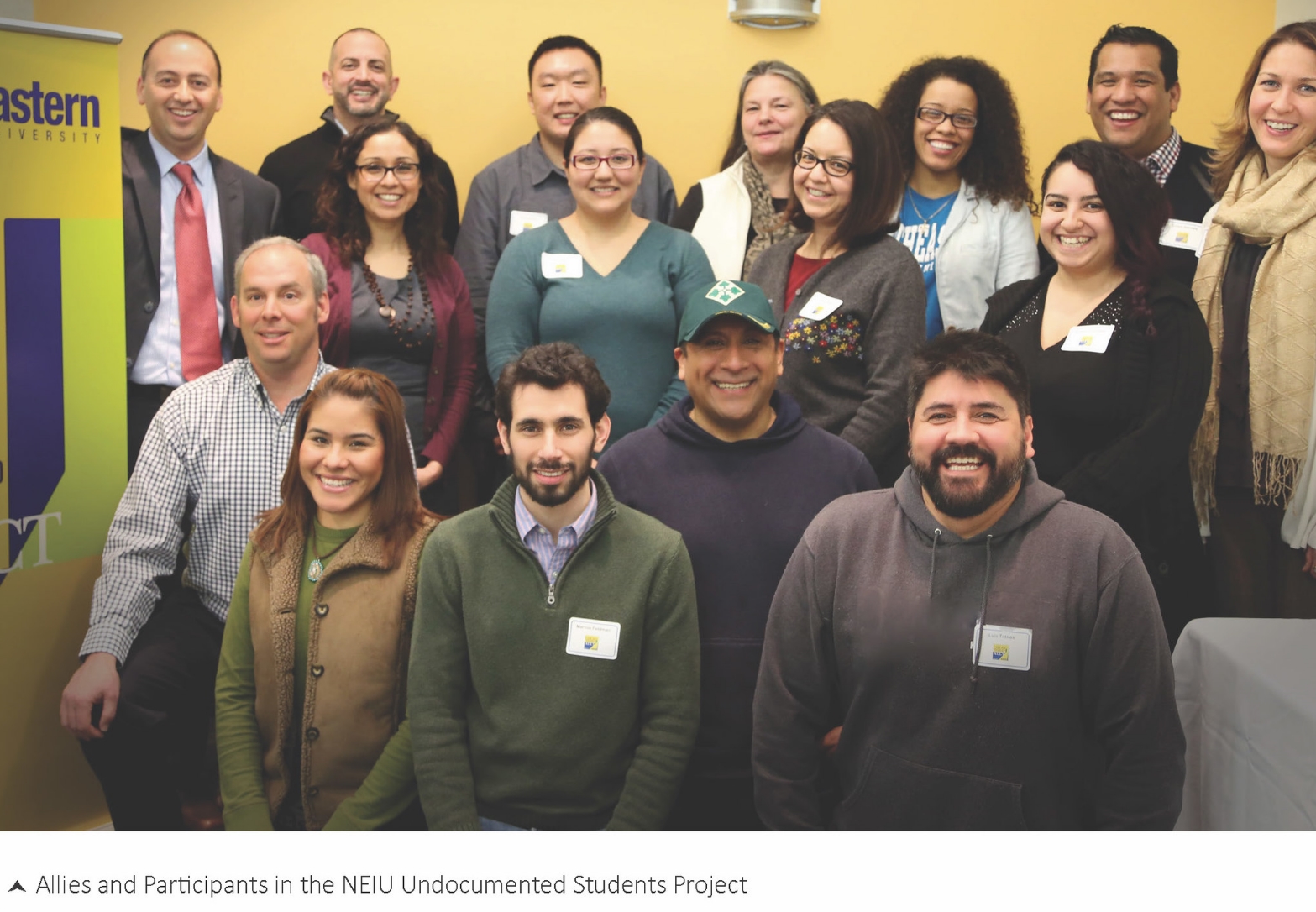Fear can overtake undocumented college students faced with the daunting tasks of applying for admission or financial aid. Not wanting to make waves, they don’t know where to go for help without putting themselves or their families at risk. At the same time, university staff might not know how to help those who are undocumented because they are not aware of resources. Referring them to other departments makes students feel they are getting the run-around. After so many referrals and no definitive guidance, they can give up. Between needs and reality, undocumented students can fall through the cracks of the higher education system.

Fear can overtake undocumented college students faced with the daunting tasks of applying for admission or financial aid. Not wanting to make waves, they don’t know where to go for help without putting themselves or their families at risk.
At the same time, university staff might not know how to help those who are undocumented because they are not aware of resources. Referring them to other departments makes students feel they are getting the run-around. After so many referrals and no definitive guidance, they can give up. Between needs and reality, undocumented students can fall through the cracks of the higher education system.
At Northeastern Illinois University (NEIU), there was never a formalized inclusive program to help faculty and staff prepare undocumented students for their higher education experience, explains Dr. Daniel Lopez, NEIU associate vice president of student affairs. “I’ve always known we have these students under the radar. I thought: What kinds of things can we do to serve students and be more innovative in our approach to them and their situations?”
The question was answered when NEIU President Sharon Hahs started a grant program for innovative ideas that could improve student success. Of the more than 60 applicants, Lopez’s idea for “The Undocumented Students Project” was one of 13 selected. Lopez clarifies that “undocumented” isn’t just a Latino issue. “We have Korean, East European, and many others. It is important to know that.”
The Safe Zone Concept for Undocumented Students
The goal is to educate and build awareness so that neither students nor employees feel threatened by the situation or each other. The project committee produced the Faculty and Staff Undocumented Student Resource Guide. Mirrored after the LGBT Safe Zone concept, the belief is that undocumented students also deserve a safe inclusive zone. “Sometimes they are questioned. Sometimes people say, “You are an undocumented. You shouldn’t be here.”
The students want to be there, to become educated. They just need guidance. The guide aims to educate and set right any misconceptions or inaccuracies in how undocumented students are portrayed. It defines an undocumented student. It explains how staff can become allies to them.
It provides stats, data, resources and institutional numbers.
On the guide’s cover, its vision is stated clearly: “All Students are Welcome Here.” The welcome message explains that the purpose of the guide is to provide resources so that staff can better assist undocumented students and their families at all NEIU campuses, including admissions and financial aid guidelines and processes. Also included is pertinent federal and state legislation. A list of allies and departmental points of contact are part of the safe zone concept and can help make NEIU a more welcoming and inclusive place.

It is a step in the right direction. President Hahs says, “Over the years, the number of undocumented students at Northeastern Illinois University has grown. Northeastern has continued to welcome them, improve support for them and celebrate their extraordinary accomplishments.”
At the annual AAHHE (American Association of Hispanics in Higher Education) conference earlier this year, Lopez and colleagues presented the workshop: “Transforming the University Environment to be Inclusive of Undocumented Students: Two Different Institutional Approaches in the Midwest.” Mostly they shared how being an inclusive campus is the right thing to do.
“Supportive environments in educational settings are essential in ensuring the academic success of all students,” said Maria Luna-Duarte, interim director of Northeastern Illinois University El Centro and an Undocumented Students Project committee member. Her doctoral research and teaching experience explores the experiences of undocumented and formerly undocumented students’ transition to postsecondary education, and assesses their needs while developing strategies and programs to help them succeed.
“For undocumented immigrant youth this is particularly important because in addition to being first- generation in college, they are dealing with other stressors including the lack of financial resources, health and mental health issues, coping every day with their immigration status and the fear of deportation for them and their families.”
Training Staff to Become Allies Makes a Difference
The Undocumented Students Project has proved incredibly successful. Lopez, an undocumented student himself in the ’80s, received residency through the amnesty program at the time, but he was lost as to how to navigate the world of higher education. “Even though I was in the National Honor Society, when it came to applying for college, I didn’t know the process or my options—only that I had to take the SATs and ACTs.”
What Lopez has come to believe is that it only takes one knowledgeable person to influence a life. An advisor helped Lopez enroll in community college and get a job there, which paid for his education. It was all he needed to get that jump-start. From there he got a full ride for his bachelor’s degree at the University of Illinois, his master’s at Loyola, and for his PhD, he worked at Illinois State University.
That’s what he wants for undocumented students at NEIU. “I know how difficult it is, but I also know once they have guidance and resources, their own drive kicks in.”
Trained staff can offer undocumented students that guidance. The Undocumented Students Project offers a six-hour training program. Approximately 30 participants are trained per semester, especially frontline people so important to the process—in admissions, financial aid, and the Bursar’s Office. Participants earn a certification of completion and a decal that says “I’m an Undocumented Student Ally.” When students see the decal, they know they can come to them specifically for direction, advice, or support on campus.

“Now there is a waitlist for employees who want to be trained,” says Lopez.
The training includes speaker panels—undocumented students talk about their stories and challenges so staff can see what they go through on a daily basis. A panel of current allies addresses issues they’ve confronted and resources they’ve found. There is also a panel of community members and organizations that help undocumented students outside of campus, such as immigration attorneys, a Legal Assistance Fund, and notaries.
Comprehensive immigration reform will come, Lopez is convinced. For now, reaching undocumented students and helping them believe a safe zone is real can alleviate fears and let them get on with their education.
“I have not heard anyone on this campus say we should not work with undocumented students,” says Lopez. “We are not immigration. We are here to help. Once they are admitted to the school, it is our responsibility to educate them. That is all.”